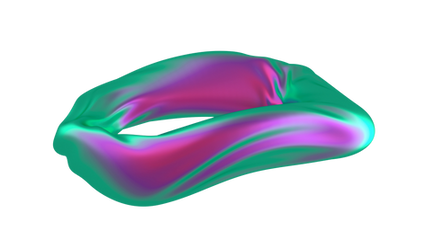How it works
o
1st
UNDERSTAND HYPNOSIS
Hypnosis is a state of focused attention and heightened suggestibility. While in this state, you are more open to suggestions and can concentrate intensely on specific thoughts, making it an effective tool for therapeutic purposes.

2nd
THE HYPNOTIC PROCESS

Induction:
-
You will be guided into a hypnotic state using an audio track that employs techniques such as deep breathing, progressive muscle relaxation, and visualization. This stage aims to quiet your conscious mind and encourage deep relaxation.
Deepening:
-
Once the you are in a light hypnotic state, the hypnotherapist uses additional techniques to deepen the trance. This may include counting down, visual imagery, or using a calm, soothing voice to encourage further relaxation.
Therapeutic Intervention:
-
In this deeply relaxed state, the hypnotherapist introduces specific suggestions or guided imagery tailored to your therapeutic goals. These suggestions are designed to address the issues or habits you want to change, such as quitting smoking, managing anxiety, or increasing self-discipline.
Post-Hypnotic Suggestions:
-
These are suggestions given towards the end of the session that will continue to influence your behavior or thinking after the session ends. For example, a post-hypnotic suggestion might be that the person will feel a sense of calm whenever they take a deep breath.
Awakening:
-
The hypnotherapist gradually brings you out of the hypnotic state, usually by counting up or suggesting that they will feel refreshed and alert upon awakening.
3rd

MECHANISMS OF ACTION
Altered Brain States:
-
During hypnosis, brain activity changes. Research has shown that certain areas of the brain associated with focused attention, relaxation, and heightened suggestibility become more active. This altered state allows for more direct communication with the subconscious mind.
Focused Attention:
-
Hypnosis helps individuals to concentrate intensely on specific thoughts or tasks, reducing distractions from the conscious mind. This focused attention makes it easier to access and alter deeply ingrained patterns and behaviors.
Heightened Suggestibility:
-
In a hypnotic state, individuals are more open to suggestions, making it easier to introduce new ways of thinking or behaving. This heightened suggestibility allows the hypnotherapist to effectively plant positive suggestions that can lead to lasting change.
Reduced Critical Thinking:
-
Hypnosis reduces the influence of the conscious mind's critical and analytical functions. This reduction allows therapeutic suggestions to bypass the usual mental barriers and be more readily accepted by the subconscious mind.
4th

WHAT YOU CAN CHANGE WITH HYPNOTHERAPY
Behavioral Changes:
-
Hypnotherapy is commonly used to help individuals change unwanted behaviors. You can use it to effortlessly quit smoking, overeating, or procrastination. By accessing the subconscious mind, hypnotherapists can help individuals reprogram any of their habits and responses.
Improving Self-Discipline and Motivation:
-
Hypnotherapy can enhance your motivation and self-discipline by reinforcing positive beliefs and behaviors. By focusing on specific goals and visualizing success, individuals can develop a stronger sense of purpose and determination.
Stress and Anxiety Management:
-
Hypnosis can induce a state of deep relaxation, making it an effective tool for reducing stress and anxiety. Through guided imagery and relaxation techniques, individuals can learn to manage their stress responses better.
Pain Management:
-
Hypnotherapy has been used successfully to help manage chronic pain. By altering the perception of pain and teaching relaxation techniques, individuals can experience relief and improved quality of life.
Literally Anything...
-
Hypnotherapy can be used for any emotion you want to feel more or less of. It can be used for any action you want to do more or less of. It also can be used for any action you want to become better at. ON TOP OF THAT, it can be used to break what you once thought where your limits; hitting a new PR on a workout, having more energy in sports, having the confidence of a king and nail a interview. Hypnotherapy is one of the worlds strongest tools yet it has hardly been used.
5th
EVIDENCE AND RESEARCH
Numerous studies support the efficacy of hypnotherapy for various conditions. Research has shown that hypnotherapy can be an effective complementary treatment for anxiety, pain management, smoking cessation, and improving sleep, among other issues. The success of hypnotherapy often depends on the individual's commitment to the therapeutic process.

.png)

